Northampton mum supports fellow sight loss patients
- Published
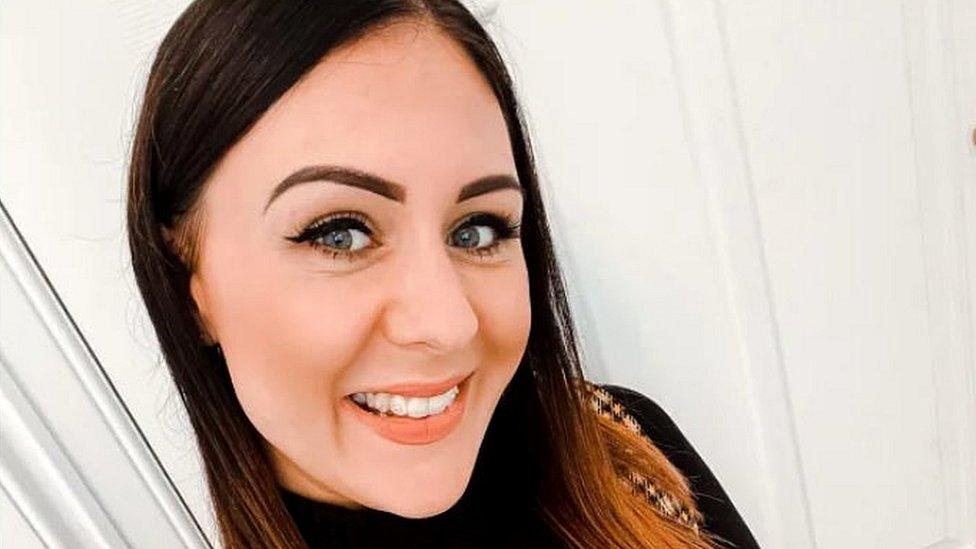
Katie Berrill has Stargardt disease and is losing her central vision
When Katie Berrill was told she was going blind it came completely out of the blue.
At the age of 32, she was diagnosed with Stargardt disease after a routine optician appointment.
The mother-of-two, who lives in Northampton, had never heard of it and wished she could find someone else with the rare condition.
So she decided to start her own blog, external, Facebook support group and Instagram, external page to raise awareness.
Here in her own words, she speaks about her sight loss journey.
'I'm still traumatised by the way I was diagnosed'
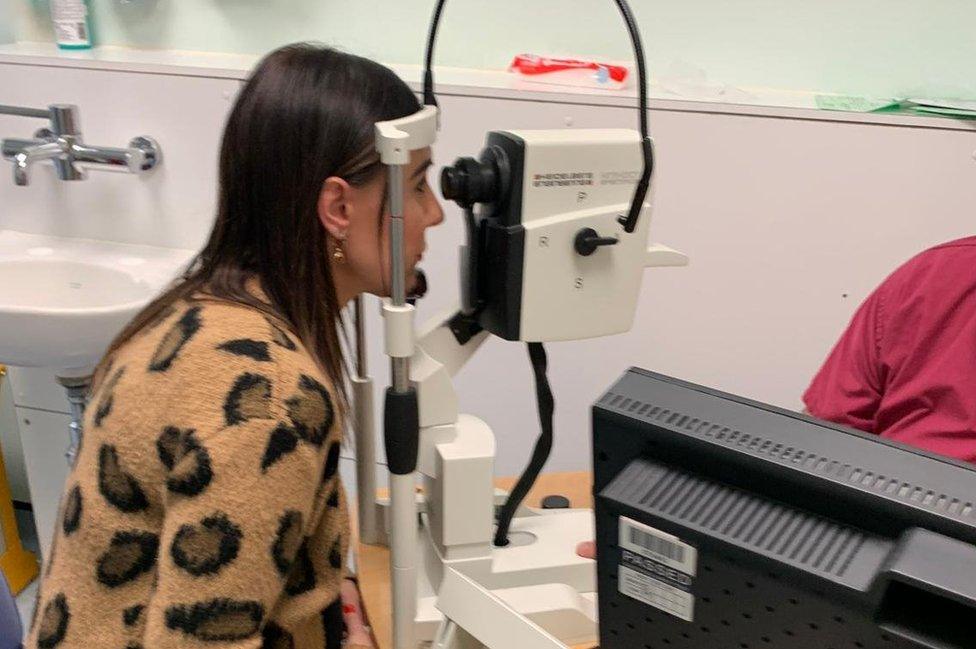
Katie was told she was going blind and didn't realise she would likely keep her peripheral vision
Five years ago I was diagnosed with Stargardt disease and I just felt completely lost. I was told I was going blind and there was no treatment or cure.
The optician noticed dark patches at the back of my eyes and asked me to go to hospital, where I got my diagnosis. It was such a shock, I still have trauma from it.
I wasn't given any information about the condition or even how much eyesight I would lose. I later learned that the disease only affects your central vision, so I can still see around the periphery of things.
The only symptom I had at the time was that I was struggling to drive at night and the car lights had a halo around them.

What is Stargardt disease?
Stargardt disease is a genetic condition caused by a tiny alteration in a single gene.
The condition affects one in every 10,000 people in the UK.
In the early stages, people may experience difficulty reading or seeing in dim light. Other common symptoms include blurriness and distortion of vision.
It is the most common form of macular dystrophy - an eye disorder that can cause worsening vision loss.
Stargardt causes a wasting of a central area of the retina at the back of the eye called the macula.
It usually affects central vision only and peripheral vision is not usually affected.
Stargardt disease is most often inherited as the recessive form, where the faulty gene is inherited from both parents who probably won't have the condition themselves.
Source: Macular Society, external

'The worst thing is not recognising my children'
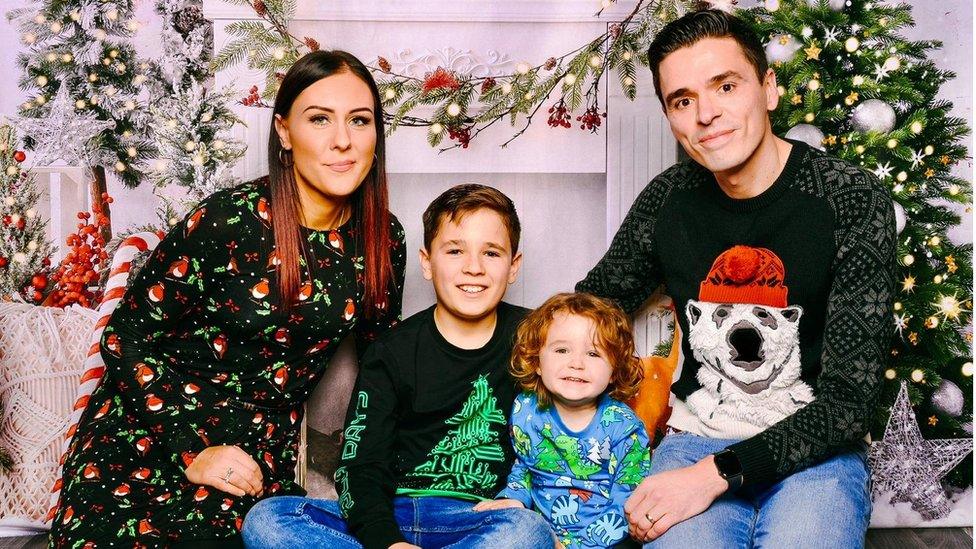
Katie says her family have been incredibly supportive and helped her cope with her sight loss
Over the last few years I have really noticed a deterioration with my sight and I now can't see detail in peoples' faces, they're very blurry. I have kept a lot of my side vision though.
I am now registered as sight impaired and I have lost my driving licence, which was very difficult for me.
But the worst thing has been not being able to recognise my children. At school pick up, when all of the kids are wearing the same colour jumper, I really struggle.
You do learn mannerisms and how people walk but sometimes it is impossible to work out who people are in the street, even if they are close family and friends.
For quite a long time it really knocked my confidence. I felt like I lost part of my identity and I wasn't sure how I was going to cope with this new life.
'I get so many messages from other patients'
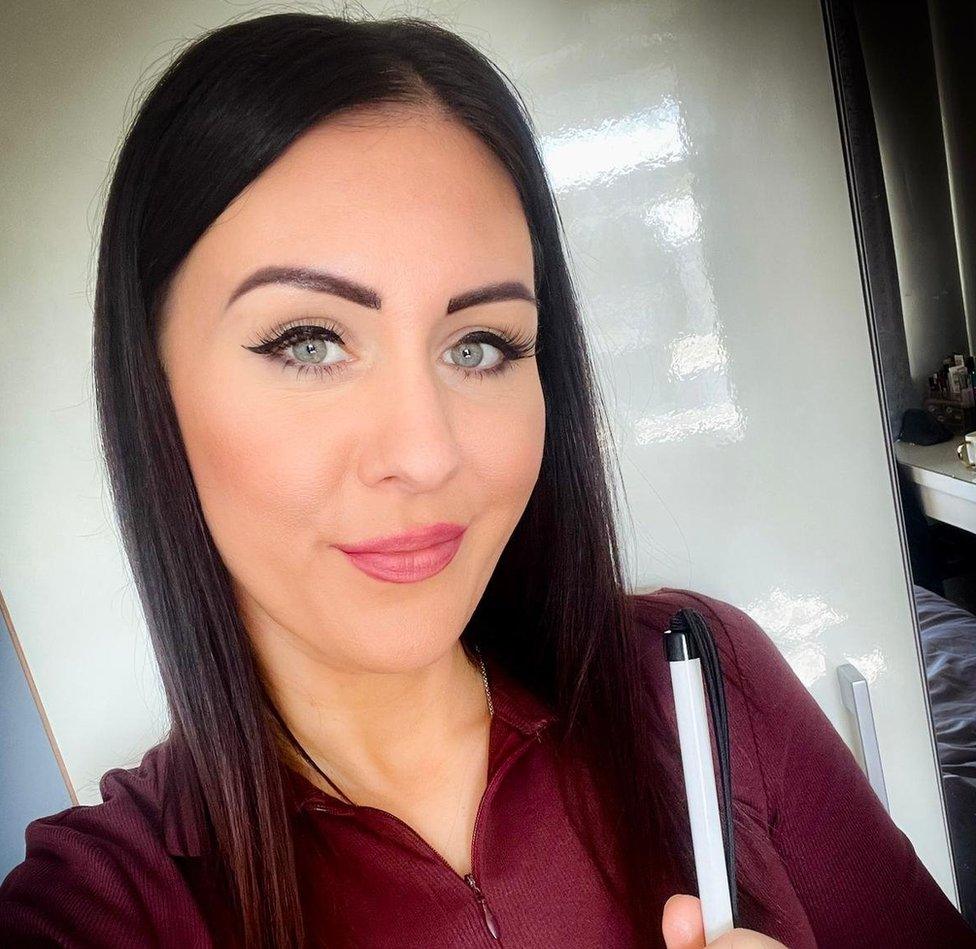
Katie runs an online support group for patients with Stargardt disease
I felt very isolated and alone because I didn't know anyone else with the condition. Especially being young, it was difficult because sight loss often affects the elderly.
I decided to start blogging about learning to live with sight loss and I started an Instagram page and a Facebook support group because I felt like that was the sort of support I needed when I was diagnosed.
Stargardt disease is rare so it's just nice to talk to other people going through the same thing. I get so many messages from people who have been diagnosed and I struggle to keep up sometimes but I always try to respond.
Sometimes it is hard because I might be having a down day and I need to be in the right headspace. I'm not a trained counsellor so sometimes I might leave it a few days to reply.
I try and give them information I didn't have and signpost them to eye charities where they can get more support.
'I have really got my confidence back'

Katie was shortlisted for the 'Positive Role Model' award for disability at the National Diversity Awards last year
I'm so proud of my sons for how they have coped with Mummy losing my vision. My 11-year-old Harvey is absolutely fantastic and does little things like reading the back of packets for me, changing the channel on the TV and when we are out he will read the menu out to me.
My three-year-old Sawyer understands my eyes don't work as well and that he needs to be well behaved if we are crossing the road and hold my hand.
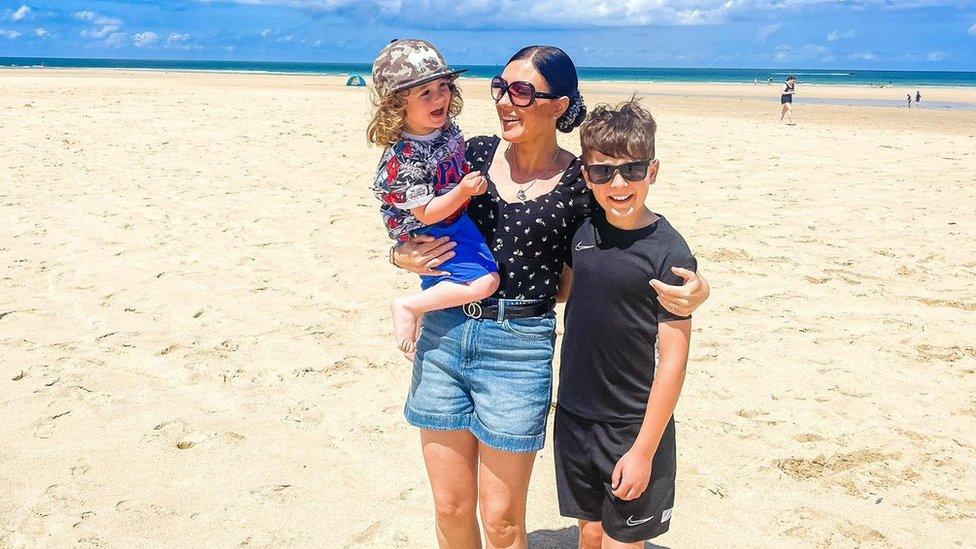
Katie says her two sons have coped really well with her deteriorating eye sight
I use a cane to symbolise my sight loss. It doesn't touch the ground like a traditional cane but signifies that I have sight loss and it means people are more aware when I cross the road. I am always being told that I don't look like I'm going blind but there are a lot of misconceptions out there.
I have really got my confidence back recently and I have started working as a dispensary assistant in a pharmacy. I was so anxious about going back to work but I haven't had any issues - I use a magnifier and the other staff are so supportive.
My motto is to live for the now and try not to worry too much about the future. I still enjoy the same things I always have done, like make up and fashion. I don't know if I will find my job more difficult in a few years' time but there's no point in worrying about it because I can't change it.
Sight loss is very difficult but it doesn't always mean complete blindness and it is a spectrum, I wish I had known that when I was diagnosed.
And most importantly, any form of sight loss or blindness doesn't have to stop you living.
As told to Charlie Jones

Find BBC News: East of England on Facebook, external, Instagram, external and Twitter, external. If you have a story suggestion email eastofenglandnews@bbc.co.uk, external
Related topics
- Published2 June 2019
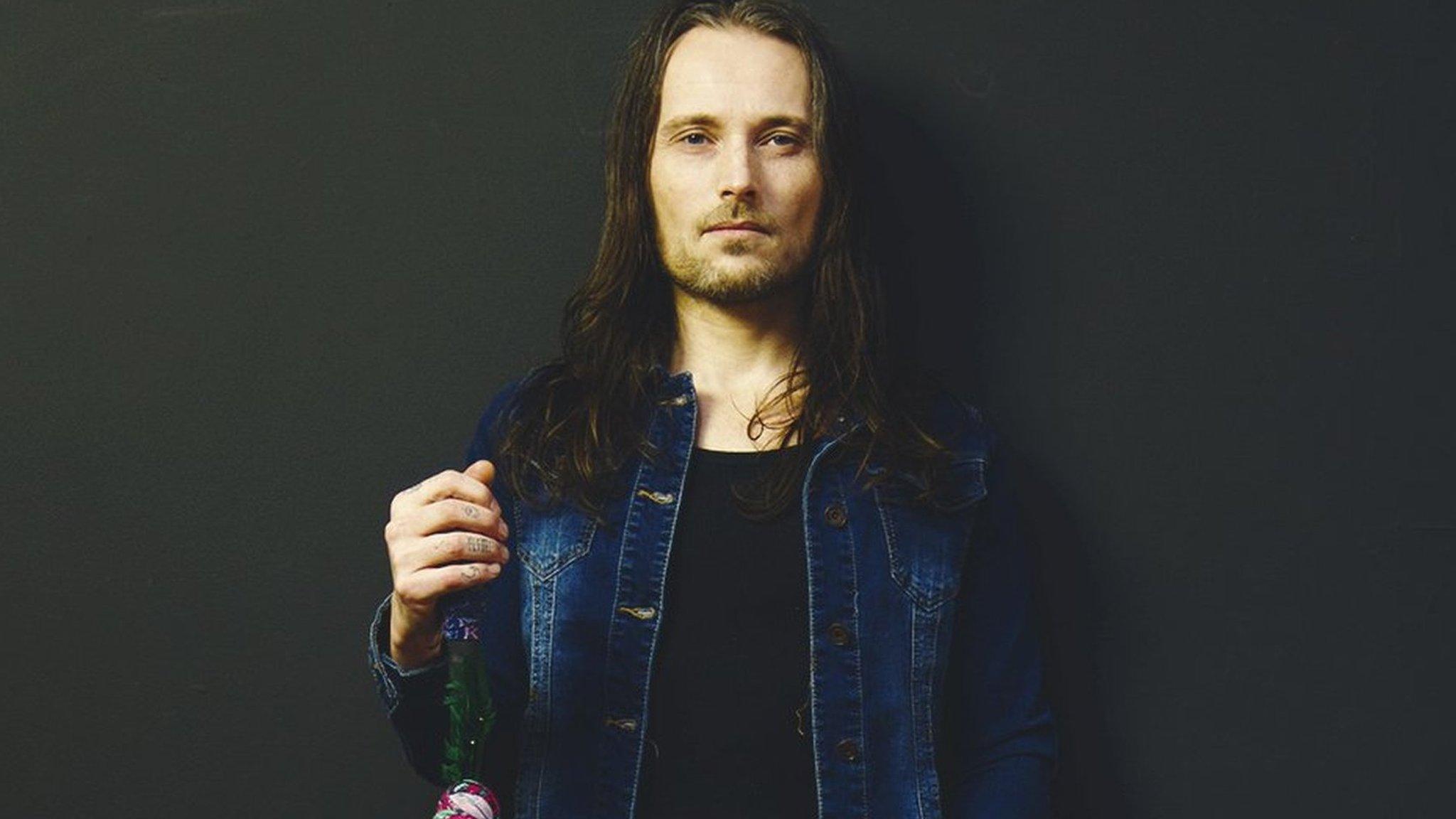
- Published29 September 2015